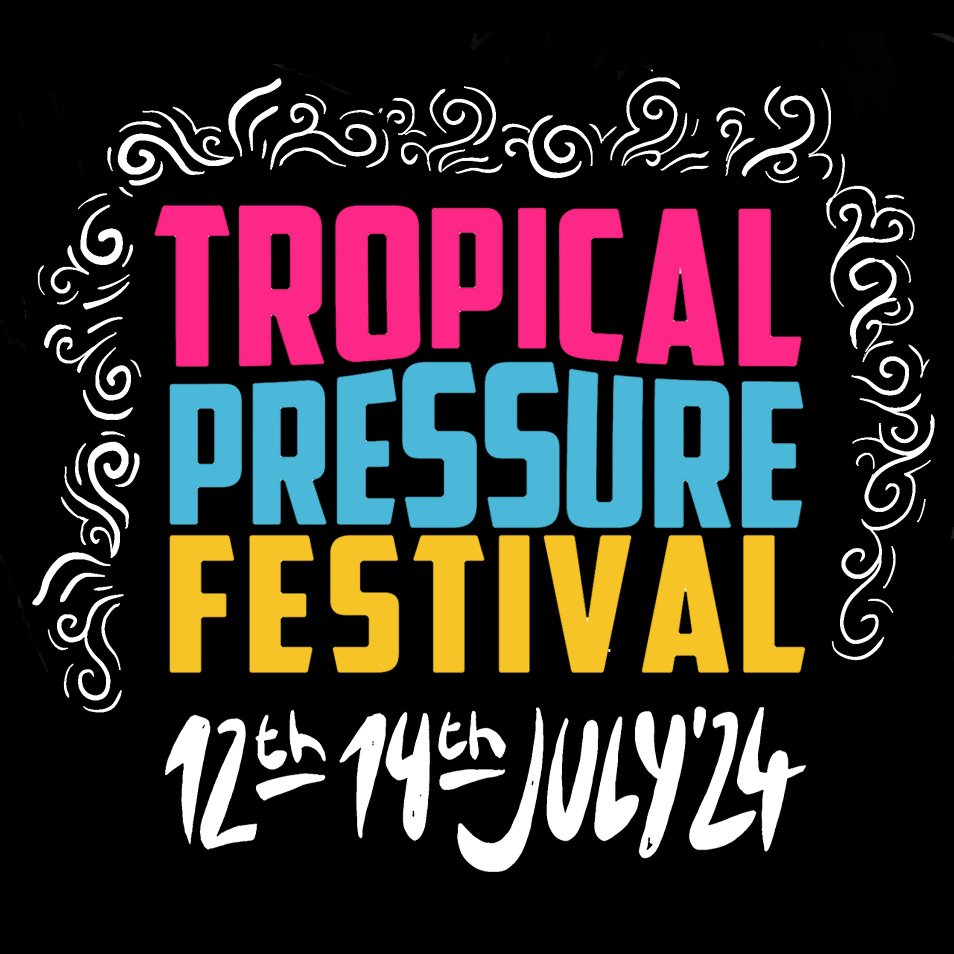saturday- Roots arena
Amadou Diagne has centuries of West African music at his fingertips. Cory Seznec is a musical wanderer and uncertified ethnomusicologist. A chance encounter while busking in Bath planted the seeds of a collaboration that’s been fermenting now for over a decade. Those seedlings are shooting up into the light with a prestigious Arts Council of England grant and the release of their sophomore album, Plastic Man, recorded at the legendary Real World Studios.
Touki means “journey” in Wolof, Diagne’s mother tongue. Plastic Man focuses on climate change, environmental activism and spiritual matters—drawing together West African fables, personal stories and the social, economic and political challenges facing both developing countries and western ones. This is music that asks ecological, spiritual, and political questions.
Born into a griot family of percussionists and praise singers in Dakar, Diagne is not your ordinary griot. Though he draws heavily on Coastal African sounds and rhythms, he has forged his own identity as a songwriter and multi-instrumentalist. A self-taught kora player (he was prohibited from studying in Senegal because he did not descend from a lineage of kora players) and guitarist (he developed a signature style to accompany his powerhouse voice), he has developed a unique and intricate style to accompany his powerful, rich, high-pitched voice, drawing on his skills as a percussionist. His music has been featured in Songlines, BBC 3 Late Junction and fRoots.
A French-American in Paris, Seznec’s fingerstyle guitar-playing is syncopated, polyrhythmic, cross-pollinated and idiosyncratic. He also plays banjo and wades in the deep river of American song. Busking misadventures with Malian musicians in the Paris metro led him to Songhai songsters in Timbuktu and ancient omutibo guitarists in Western Kenya. Feverish touring with the world roots trio Groanbox gave him his sea legs. But a three-year stint in Ethiopia is what cracked everything open. These experiences shaped Seznec into an artist who traces the through-line across musical cultures and whose songs let the past reverberate in the present.
Touki’s new songs are steeped in stories and parables. The title track is an mbalax-inspired homage to climate activist Modou Fall, who dresses up as a plastic kankurang (a Mandé protective spirit) to draw attention to the plastic pollution plaguing Senegal’s coastline. Tunes like “Wounded Bird Fly Again” and “God Among Men” are inspired by western Kenyan omutibo acoustic guitar music - the latter a song that rails against society’s obsession with “titans of industry,” pointing out that many whom claim to be changing the world for the better are actually responsible for environmental devastation. “Water Taxi” is a haunting song about the refugee crisis inspired by the book There are no taxis in the sea by Roberto Saviano. The soulful “Yirmane” is an admonishment of the political corruption in Senegal. On a lighter note, “Fula Cowboy” puts a West African spin on the American western. Here the Nomadic Fula pastoralists are portrayed as zen cowboys governed by a moral code in which the absence of physical, material and social needs, and the mastery of self are paramount. “Diallo Djeri” is about these same pastoralists and the challenges involved in keeping their family healthy and engaging in sustainable livestock farming. “Harit” is about trying to find common ground in a time of bitter divisiveness.
Instrumental songs like “Mabrat Allé?” (Is There Light?) and “Wenchi Breakdown” are references to Cory’s stint in Ethiopia, where, despite the hardships of life - power cuts were a regular occurrence and car troubles in the countryside proved disastrous - he had an intensely rich and unforgettable experience. “Djarama” is an up-tempo thank you to hardworking women in Senegal, (particularly rural rice workers in Casamance): mothers raising kids and doing what they can to make money, beignets, food and clothing.
As they sail through the crosscurrents our complex world, Touki understands that the musical voyage itself is the destination.
“A scintillating sequel to Ali Farka Touré & Ry Cooder’s Talking Timbuktu.” ROLLING STONE
“A subtle and fresh fusion that is further boosted by Seznec’s voice, a dextrous, resonant drawl that brings out the color of his songs.” SONGLINES

